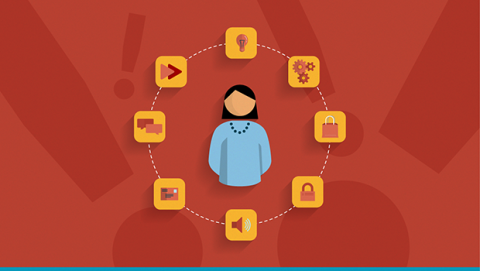In 2017 disruptive technologies that were previously buzz words will become a reality, there will be a rise in cyberattacks, and the new administration, in addition to going digital, will most likely change policies and regulations, requiring modifications to IT systems. With all of these changes, enterprises will continue to look to IT to be an enabler of digital transformation for increased efficiency and competitiveness.
Here are eight key trends on the horizon for 2017:
1. US government deregulation – Under a new administration and Republican Congress, major changes in regulations are expected to impact numerous industries. The ripple effects across IT systems will likely require significant changes in business processes, and may even necessitate wholesale replacement of Governance, Risk, and Compliance (GRC) and other specialized systems in industries such as healthcare and banking where the deregulatory expectations are particularly high.
2. Rise in state-sponsored cyberattacks – Businesses should be prepared for a rise in state-sponsored attacks like the much publicized Russian-backed hackers’ break into mobile phones used by Democratic Party officials. Backed by budget, manpower, and determination, nations don’t have to worry about recouping costs or generating profit, so state-sponsored cyberattacks targeting mobile devices and enterprise systems will only increase in 2017.
3. IoT security as first priority – Recent IoT security breaches will put security top-of-mind for enterprise IT departments in 2017. As billions of connected things are deployed, botnets will continue to multiply if devices aren’t secured. Security measures will be taken to prevent attacks from hacked consumer CCTV cameras and other connected devices that caused outages for Twitter, Amazon, Tumblr, Reddit, Spotify, Netflix, and others earlier this year. In addition, corporate IoT deployments will be hardened to prevent Stuxnet type attacks.
4. Geo-fencing for mobile app push notifications – Geo-fencing will become a more common feature for mobile applications, especially push notifications used for sending shoppers incentives, reminders of rewards, and surveying customers about their shopping experience. Retailers will be able to build email and in-app campaigns for shoppers who have previously appeared at specific locations.
5. Digital customer experience as important as the product – Consumers will consider a convenient and intuitive shopping app experience to be as important as the quality of the product or service they buy. Experiences beyond the ordinary that include augmented reality, virtual marketplaces, peer-to-peer collaboration, and 360-degree integration will be in demand.
6. App modernization for consistency – Existing on-premise apps will continue to be morphed into mobile apps with a push to create a consistent look and feel across all platforms, including tablets, mobile, and the web.
7. AI will be everywhere - Corporate giants like Google, IBM, Yahoo, Intel, Apple, and Salesforce, are competing in the race to acquire private AI companies, with over 40 acquisitions taking place in 2016 alone. This year, AI will be used to discover insights, predict outcomes, suggest next steps, and anticipate sales opportunities for businesses.
8. Displacements due to digital transformation and demonetization displacements – No company wants to go the way of Blockbuster or Polaroid cameras. Risk-adverse businesses that postpone innovating and adapting processes to match the needs of the digital economy may quickly become obsolete, no matter how trusted their products and services once were. Demonetization and the digitization of currency will drive new consumer revolutions across numerous marketplaces, presenting both threats and opportunities to which businesses must quickly adjust.
The year ahead will present new opportunities and challenges accelerated by change in policies and disruptive technologies. Having a flexible, scalable, robust integration platform will make it possible to support the changes in culture brought on by focusing on the customer experience and digital transformation. Being flexible and adaptable to rapidly implement and integrate technologies will increase competitiveness and lead to essential differentiators for market leaders’ success.




